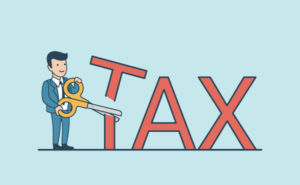How the Internet Became Commercial

What’s Behind the Commercial movement of the Internet? Believe it or not the Internet was not originally created to share your life on social media sites like Facebook and Instagram or to watch movies, play games or follow your favorite pastime. When it was first invented, the military and research universities were the primary users of the Internet, via several loosely connected networks. However, over time, and at a rather rapid pace, the Internet has become the commercial powerhouse it is today. That wasn’t always the plan or the goal for the Internet, so how did it become the mainstream commercialization machine that it is today?
Patterns in the Deployment of Technology
I spoke with Shane Greenstein, who is a faculty member at the Harvard School of Business, about this topic, which also happens to be the subject of his book How the Internet Became Commercial. Shane is the MBA Class of 1957 Professor of Business Administration and co-chair of the HBS Digital Initiative. He teaches in the Technology, Operations and Management Unit. Shane is also co-director of the program on the economics of digitization at The National Bureau of Economic Research. When I spoke with Shane, I noted that now that we’re moving into the realm of big data, understanding human behavior aspect of it. So I asked: “When we look at this today are there patterns that are emerging?
Repetition and Coordination
“The interesting thing is that an awful lot of what we observe today are patterns that we have seen in the past. And the more you appreciate how much repetition there is the easier it is to identify. For example, when very big things deploy you tend to find patterns of hesitance because multiple firms have to cooperate together in order to make something work as a system. Getting that coordination to work is usually quite difficult. That’s something you saw in electricity and automobiles, airplanes the Internet and we are seeing today in big data. Disagreements about fields, disagreements about getting the coordination of different ways and algorithms to get them to work with each and have standardized ways of doing machine learning so that everybody can talk to each other.”
Adaptation Problems
Shane also noted, “The other thing you typically see when big things deploy is adaptation problems. It turns out big technology isn’t useful out of the box. It requires much more investment to adapt to the needs of a particular user and that kind of adaptation is fairly expensive typically. It’s typically where most of society spends most of its money as it turns out. Again you saw it in electricity, you saw the pattern in automobiles and you see it in every major deployment. And again you saw it in the Internet and if you look at big data what’s the big problem? You see it everywhere: adaptation. Lots of firms have the data but they haven’t figured out exactly how to modify it in order to find the value in it.”
To view the full interview with Shane please click here.
There’s Still Time to Cut Your 2016 Tax Bill
So with tax season officially kicking off next week, as the IRS will begin receiving returns on January 23rd, it would seem that the time to save money on your 2016 taxes is now gone. However, there is still a nice tax break available for this year all the way up till April 18th (the…
Tax Season Starts Next Week – Are You Ready?
It’s almost here. That glorious time of year known and loved by millions as “tax season.” Of course, the reality is that most taxpayers don’t look forward to this time of year – unless they’re expecting a large return – but even those that fall into this category still don’t look forward to the…
Could Some Wealthy Taxpayers Pay More Taxes With Trump?
Are you ready for some new tax policies under President-Elect Donald Trump? Ready or not, there are likely going to be big changes to the nation’s tax system when Trump takes office this month. All the talk since the election began has been about Trump’s tax cuts helping the rich get richer. While it’s…
Will Latest Group Lottery Winner Be Affected by Taxes?
There is nothing quite like winning the lottery. In almost all cases lotto winners go from rags to riches overnight. There is definitely a thrill and exhilaration that comes with becoming an instant multi-millionaire. Who wouldn’t want to win the lottery? Hold that thought. Winning the lottery comes with several possible catches that could…




